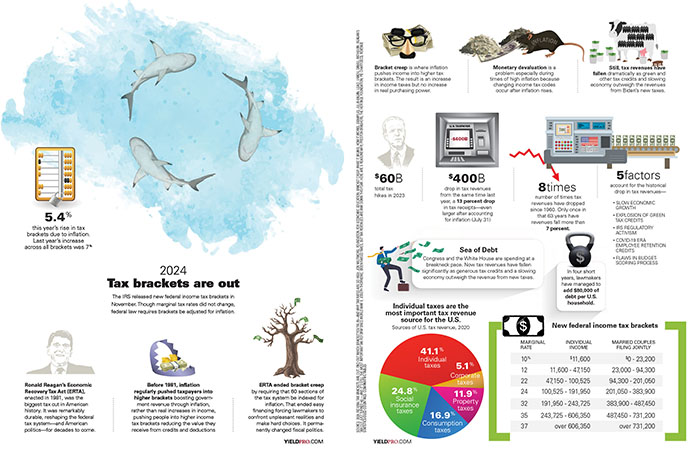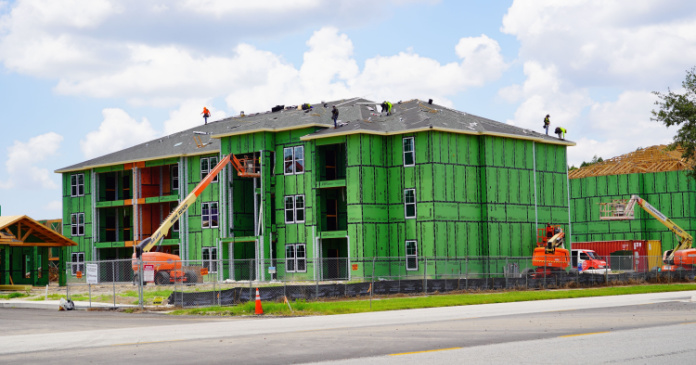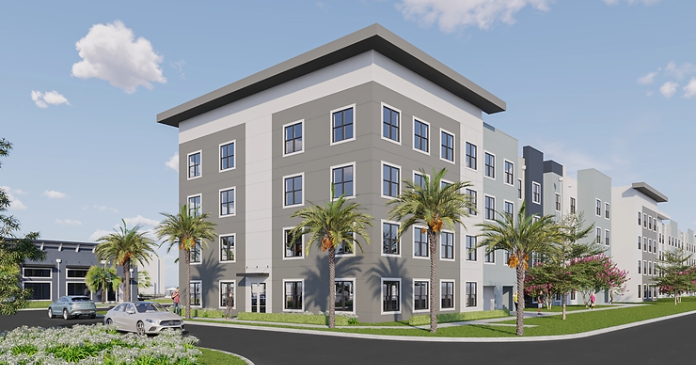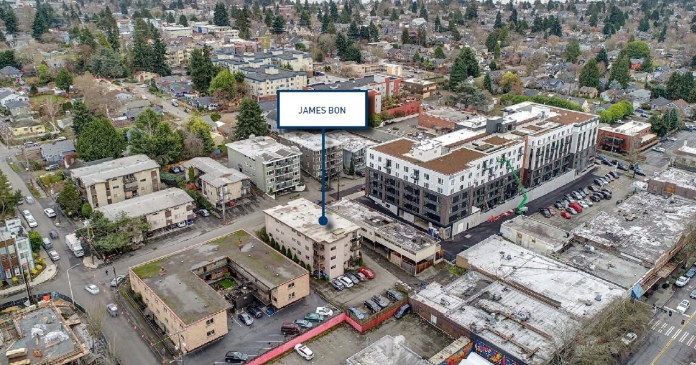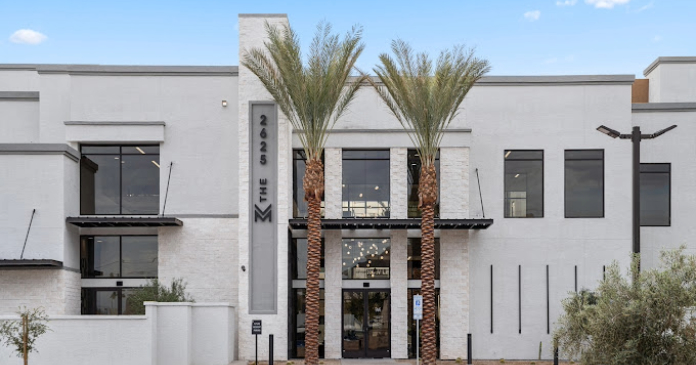And, at AIMCO, the nation’s largest owner of apartments for 11 consecutive years, CFO Tom Herzog stepped down in efforts to reduce the REIT’s general and administrative overhead.
Colonial announced in January that Thomas H. Lowder would move back into the driver’s seat as CEO, a position he held from 1993 to 2006.
Lowder, who also served as the REIT’s board chairman since 1993, replaced C. Thompson Reynolds, who has moved to the CFO spot, unseating Weston M. Andress, who resigned.
That same month, George Lane returned to the company he founded in 1988, taking over the CEO position from Bill Donges, who joined Atlanta-based Lane Company in 2002 as chief operating officer and was promoted to CEO in 2005.
With years of experience navigating the apartment industry’s ups and downs, the returned chief executives are rolling up their sleeves for the hard work ahead.
The difference a downturn makes
As Donges expanded Lane Company beyond its Southeast footprint, his strong managerial background was an advantage. He united Lane’s four variously-named subsidiaries under one Lane Company banner, steered the company’s expansion into Texas, Florida and the Mid-Atlantic, opened offices in Washington D.C., Charlotte, N.C., and Phoenix and ramped up Lane’s condo and apartment development activities.
But last year, in the midst of a tightening credit market and softening apartment fundamentals, Lane Company cut back development staff and the company’s development pipeline and closed the newly opened offices in D.C. and Phoenix.
“Bill’s done a great job shepherding us through a strong period of growth. But unfortunately the real estate market is in a deep contraction,” said Lane.
Eric Hade, Lane Company general counsel and VP of capital markets, agreed, saying “George and Bill have two entirely different skill sets. Bill’s skill sets are not necessarily real estate specific. He’s a manager, and at this time its really about nuts and bolts blocking and tackling real estate. You need to be willing to get your hands dirty and work through this part of the cycle, and that’s George’s forte,” he said, referring to Lane’s recently minted strategy aimed at right-sizing the company and reorganizing its remaining entities to maximize cash flow. Donges concurred, saying that, given the contraction of the capital markets, it is appropriate for just one person to be both chairman and CEO.
So, what’s ahead for Lane? First on the agenda is working with lenders to restructure maturities and other debt, said Hade. Since Lane did little acquiring over the past five years, mostly picking up opportunistic one-offs here and there, the bulk of the company’s near- term debt is in construction loans.
“We are negotiating those with banks on a case-by-case basis and as long as you are covering your debt service, they seem to be extending at this point. Much of the company’s liquidity problems are being driven by banks looking for additional collateral on performing assets in the wake of new accounting rules that require them to mark to market these days. That is probably the single biggest issue facing us right now, getting capital for our properties,” Hade said.
Another top priority for Lane is evaluating and acquiring assets through the recently formed $250 million joint venture with Lubert Adler, a Philadelphia-based private equity firm that has partnered with Lane on a number of ventures over the past ten years. On the radar for the fund are value-added or distressed assets, distressed sellers and capital dislocation opportunities in Southeast and Southwest markets.
Lane acquired the 57-year-old, 533-unit 710 Peachtree in Midtown Atlanta last May, renamed the property Solace on Peachtree and recently placed the asset in the fund. The 18-story, mixed-use project with 34,000 sq. ft. of ground-floor retail, adjacent to a MARTA light- rail station, several blocks from downtown Atlanta and minutes from the Buckhead sub-market, is undergoing an $8 million renovation that includes installing a new street-level facade and upgrades to the commercial space to help the existing businesses attract more pedestrian traffic. Apartment upgrades include new appliances, cabinets, counter tops and fixtures, along with upgrading the amenities and mechanical infrastructure.
Human resources
Lane also plans to leverage the company’s management expertise and the talents of its right-sized development team. Hade thinks Lane’s vertically integrated platform, which spans the value spectrum from land acquisition to property development to acquisition of value-add and stabilized properties for rehab or management plays, gives the company an edge over a pure developer or an acquisition shell that is 100 percent dependent on new transaction volume to cover overhead.
Gone are the days when cap rate compression alone provided price increases, when actual onsite property operations were not viewed necessarily as the primary means of increasing the sales price, said Hade. “I think now you are going to have to focus on true blocking and tackling at the operating level, focusing on retaining occupancy and increasing it in a decreasing environment, maintaining rents and controlling expenses and all of those are areas where we really excel as a third-party manager. And that’s just on the conventional side.
The other area where we are going to see an enormous uptick is in the affordable housing segment, where we are one of the top compliance organizations for tax credit deals. So as the government expands its interest in housing, I think we’ll benefit from that as well,” said Hade.
Lane manages 6,000 of its own units and oversees another 22,000 apartments for third-party clients, including the Atlanta and Charlotte Housing Authorities.
He also thinks the talents of Lane’s development team will be in demand from lenders, or their servicing agents, whose REO portfolios likely will increase in the near to mid-term. But Hade acknowledges that Lane is not alone in the hunt for those distressed asset plays, which have yet to materialize en masse.
“I think everybody who is in the development space who hasn’t closed their doors has basically re-characterized a significant portion of their development team as servicing agents and moved to more of a service platform. But lenders haven’t really been aggressive about taking the keys back. Now that just might be a matter of time. There is apparently about $170 billion of multifamily loans that mature this year. The majority of those seem to be CMBS, not regular banks or life companies, people who would have historically taken the keys back more actively. I’m not really sure where it’s going to shake out, but we have not seen a lot of that business increase yet,” he said.
Meanwhile, Lane is using the auction block and other methods to unload the remaining unsold condos in its inventory. “George has always been in the condo business throughout his entire career, but for this particular cycle, we developed about 20 different condo projects, probably 3,000 units. Fourteen are fully sold out, three have been converted into rental properties and the remaining three are more than 75 percent sold and closed,” said Hade, adding that most of the company’s four or five condos sales per month are to first-time home-buyers, corporate relocations and those taking advantage of low- interest-rate financing and reduced prices.
Disposition mission
Lowder told analysts during Colonial’s Q4 2008 earnings call that he is ready to do whatever it takes to strengthen the company’s balance sheet, make it through a tough 2010 and prepare for growth in 2011. As Lane Company’s former CEO did last year, Lowder is cutting back staff to reduce overhead and scaling down development.
Lowder said prices have been slashed by 30 to 40 percent and he expects the condos to sell out over the next 24 months, mostly to small investors who are buying one to ten units at a time. “That’s where the heavier discounts come in. In some cases those units are already leased by us, so the purchaser is buying them with current income and parking them for three or four years, waiting to reap the harvest in a sale,” he said.
The REIT also provided seller financing of 55 percent with a low interest rate to close the almost $30 million sale of Colonial Promenade Fultondale retail center in Alabama. With the goal of becoming a pure multifamily REIT, Colonial is in due diligence on another three retail centers, valued at $100 million, that could close by mid-year.
The REIT also closed a new $350 million credit facility with Fannie Mae that is secured by 19 properties, at a fixed rate of 6.07 percent for 10 years, and expects to close another tranche up to $150 million with Fannie Mae in Q1, which will provide liquidity for debt maturities in 2010, help pay down the REIT’s secured line of credit, continue its unsecured debt repurchase program and complete remaining developments.
Colonial has three apartment projects totaling 1,042 units and two retail centers under construction. As of September 30, 2008, the REIT owned and/or managed 36,481 apartment units, 16.5 million sq. ft. of office space and 9.1 million sq. ft. of retail located in markets spread from Virginia to Nevada.
Management shift
In the weeks prior to its Q4 earnings call on Feb 10, AIMCO hammered out a plan to reduce overhead, significantly reduce its redevelopment activities and consolidate its CFO position. Tim Beaudin was promoted to co-president and will continue to serve as COO. David Robertson was promoted to co-president and will continue to serve as AIMCO’s CIO. On March 1, Robertson also took over as CFO from Herzog, who served in that capacity since 2005, when he was promoted from chief accounting officer.
Facing $350 million of corporate debt maturing in 2011 and $650 million of property debt maturities (on 38 assets) over the next three years, AIMCO will continue its disposition strategy this year hoping buyers will assume some of that debt.
AIMCO slipped to third largest apartment owner last year, disposing of $2.6 billion of assets (38,091 units) and exiting six markets, bringing its total portfolio to 162,807 units. “Looking forward, we plan to sell most of the $1.5 billion balance of conventional properties located outside of our target markets, as well as a significant number of affordable properties, with the majority of these sales occurring in 2009, if market conditions allow,” Robertson told analysts at the REIT’s Q4 earnings call. He expects the majority of buyers will continue to be local operators, although he said he is seeing an increase in demand for $100 million to $300 million portfolio buys among larger regional and national operators.
AIMCO also intends to cut its dividend to $0.25 from $0.60.





